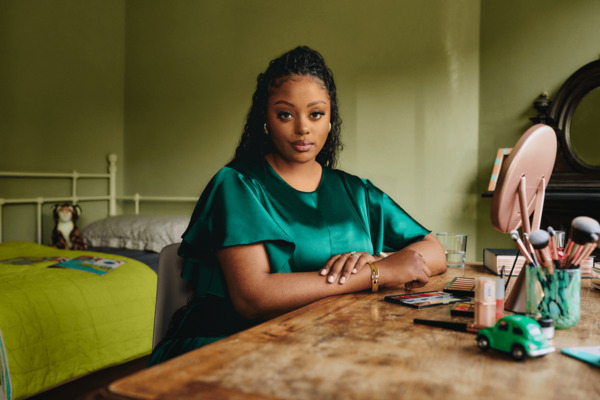Managing hot flushes during cancer treatment
Why hot flushes happen?
Hot flushes and sweating are common symptoms of natural menopause. They are also a common side effect of cancer treatments that change hormone levels.
This can happen with:
- hormone therapy, often used to treat breast and prostate cancer, and sometimes used for womb and ovarian cancer
- Other cancer treatments that affect the ovaries and testes and cause menopausal symptoms such as, chemotherapy or pelvic radiotherapy
- surgery that has removed both the ovaries or testes
Hot flushes or sweating may also be due to:
- a symptom of a health condition or illness – for example, a sign of an infection
- a symptom of certain types of cancer – for example, night sweats are sometimes a symptom of lymphoma
Talk to your doctor or nurse if you have hot flushes or sweating.
What does a hot flush feel like?
You might feel a sudden warmth in your face, neck, or chest. This can affect your whole body, sometimes with redness, sweating or a faster heartbeat (palpitations). The intensity of a hot flush can vary and for some they can be worse at night and cause a heavy night sweat. These can last for minutes or longer and may happen many times a day or night.
Hot flushes are not just uncomfortable. They can disturb your sleep, affect your mood and relationships. Sometimes, they can even make it harder to stay on treatment.
If you’re struggling, please remember you don’t have to put up with this alone. Support is available.
Learn more about hot flushes and sweating during cancer treatment.
What you can do to help hot flushes
There are ways to feel more comfortable and in control even if hot flushes are happening often. You might need to try a few things to find what works best for you.
Ways to cool down
Simple cooling techniques can make a big difference.
- Keep a handheld fan or cooling spray with you
- Use a chill pillow or cooling gel pad in bed.
- Wear light, breathable fabrics like cotton or bamboo.
- Keep your bedroom cool with a fan or open window.
- Have a cold drink and keep a bottle of water with you.
Complementary therapies may help
Some people find relief through different therapies, including:
- Cognitive Behavioural Therapy (CBT) which may help reduce flushes and improve sleep.
- Acupuncture reflexology or hypnotherapy.
Always talk to your cancer team before trying complementary therapies.
Learn more about managing menopausal symptoms caused by cancer treatment.
Create a better sleep environment
Hot flushes at night can make it hard to rest. These tips might help:
- Avoid spicy food, alcohol, and caffeine in the evening.
- Use layered bedding you can adjust easily.
- Try a cool shower before bed to lower your body temperature.
- Mindfulness and relaxation techniques may help you feel calmer and more in control, including controlled breathing or yoga techniques
- Read other people’s experiences - Coping with sleep problems - Online Community discussion
We have more information about what can help if you have problems with sleep.
Where to get support
Talk to your cancer team
If hot flushes are affecting your daily life, tell your nurse or doctor. They may be able to:
- suggest non-hormonal medicines if hot flushes are caused by hormonal therapy.
- connect you with supportive therapies.
- refer you to a local menopause clinic.
You don’t have to manage this alone, your healthcare team is there to help.
Research into new medicines
Researchers are looking into new non-hormonal treatments for people on hormone therapies. Talk to your healthcare team about if there are any newer treatments available or clinical trials.
Learn more about what you can do if a treatment is not available.
How we can help
- Contact the Macmillan Support Line for free on 0808 808 00 00, if you have any questions.
- Use our Online Chat
- Visit our Online Community to connect with others who have been affected by cancer. Share your experiences, and read articles on topics such as about hot flushes
About our information
This information has been written, revised and edited by Macmillan's Digital Content Editor team. Learn more about our Digital Content Editors and how we produce our cancer information.
Accurate information helps you make informed choices. Look for trustworthy, reliable sources such as Macmillan Cancer Support, the NHS and your own healthcare team.
We have more information on how to find reliable health information online and understanding cancer myths and misinformation.
About the author

Ros Ayres
Read more
-
Stories 01 May 2025Nellie was diagnosed in October 2023 after being told a lump in her breast was a dried up milk duct from breastfeeding. She felt isolated during her diagnosis and treatment and is now advocating for...
-
Stories 21 Jul 2025Cancer and its treatment can change your body, and that might affect how you see or feel about yourself. Over time, many people find ways to reconnect with their body and rebuild confidence in how...
-
Stories 07 Sep 2023Karen was diagnosed with endometrial cancer in January 2020. At the time she was also managing existing health conditions, dealing with bereavement and then covid lockdowns. Here she shares how...






